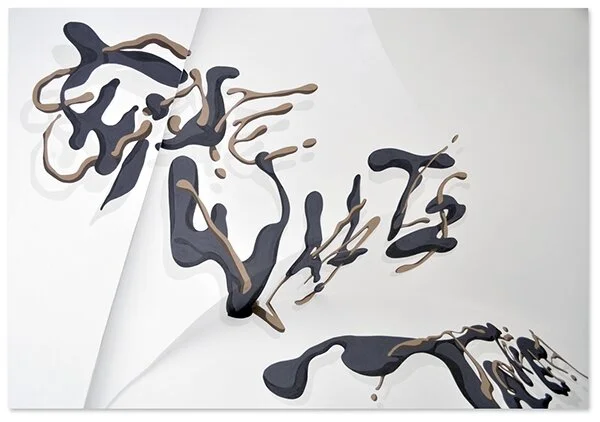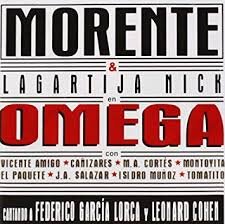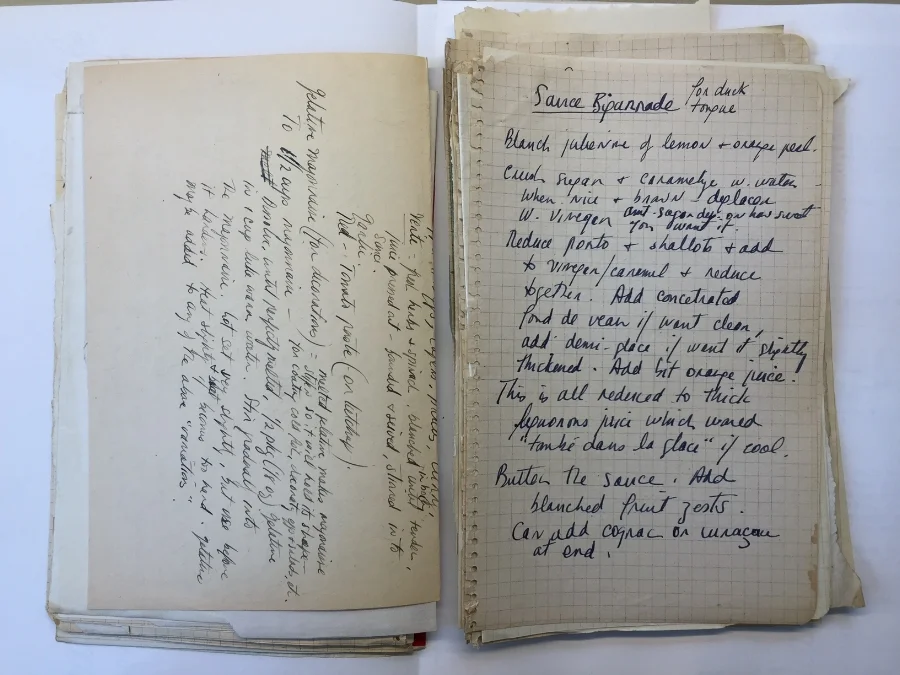Take This Waltz
“I could say that when I was a young man, an adolescent, and I hungered for a voice, I studied the English poets and I knew their work well, and I copied their styles, but I could not find a voice. It was only when I read, even in translation, the works of Lorca that I understood that there was a voice. It is not that I copied his voice; I would not dare. But he gave me permission to find a voice, to locate a voice, that is to locate a self, a self that is not fixed, a self that struggles for its own existence. As I grew older, I understood that instructions came with this voice. What were these instructions? The instructions were never to lament casually. And if one is to express the great inevitable defeat that awaits us all, it must be done within the strict confines of dignity and beauty.” —Leonard Cohen, acceptance speech for the Prince of Asturias Award for Literature 2011.
Is it harder to translate, or easier to invent? Easier, perhaps, because the essence of the idea is already there before the translator? Or harder, perhaps, for the desire to retain the essence through new means, through new language?
In “Take This Waltz,” we see the translation from poem into song and into new language. We then see how this song got translated back to the original words of the poem while retaining the music of translation.
Origins of a Song
In 1929, Spanish poet Federico García Lorca visited New York, witnessing life there before and immediately following the stock market crash of that year. The city left a mark on him; it was a city of desolation and decay, but it was also the rupture he sought in his search for a new poetry. This clash of an ever-grinding urban organism with the human experience spawned a series of poems and speeches which later became published as Poeta en Nueva York (Poet in New York).
The poem “Pequeño Vals Vienés” is a series of surrealistic images that come together through the beat of an unheard waltz. It is this song that we follow.
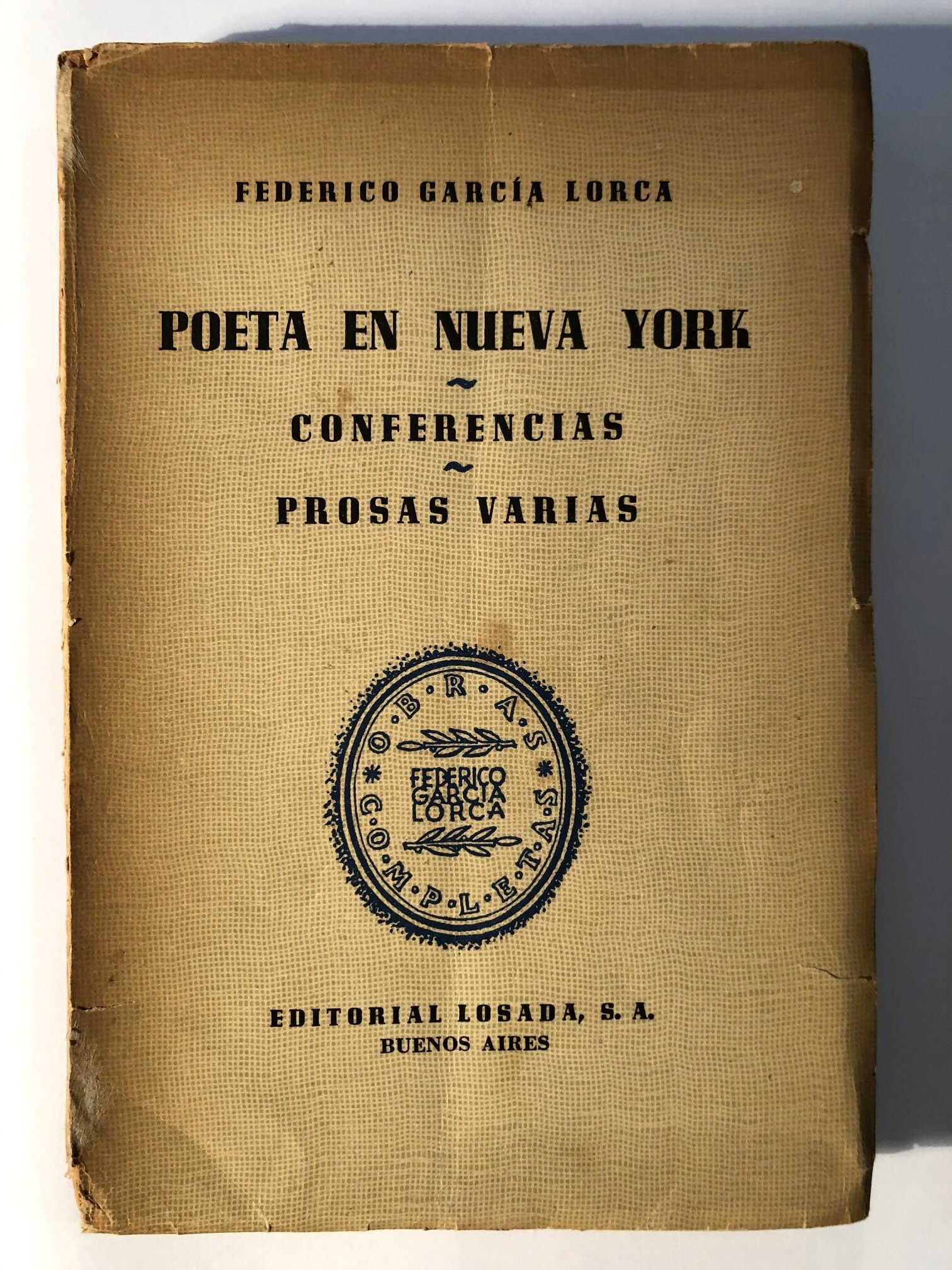
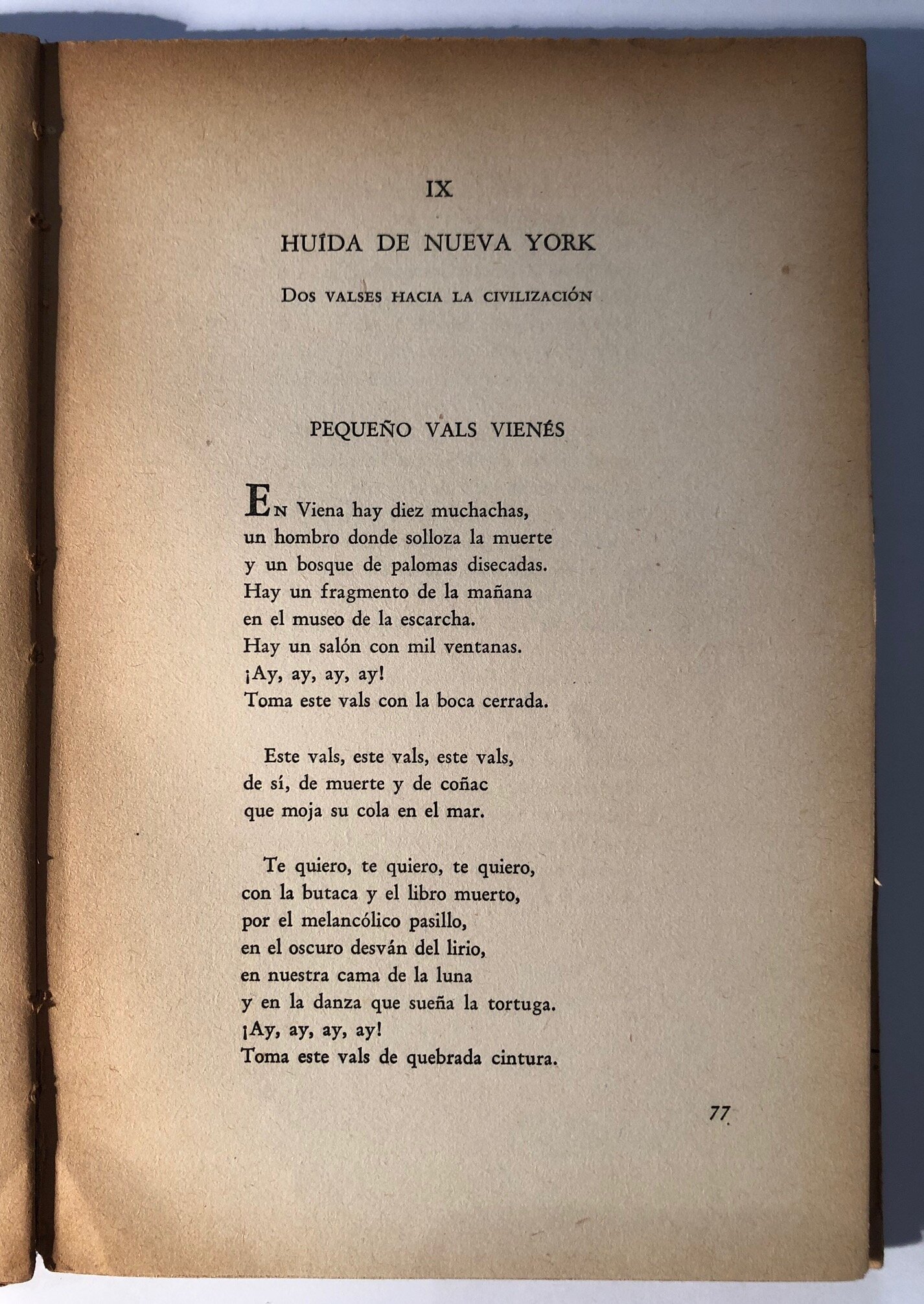
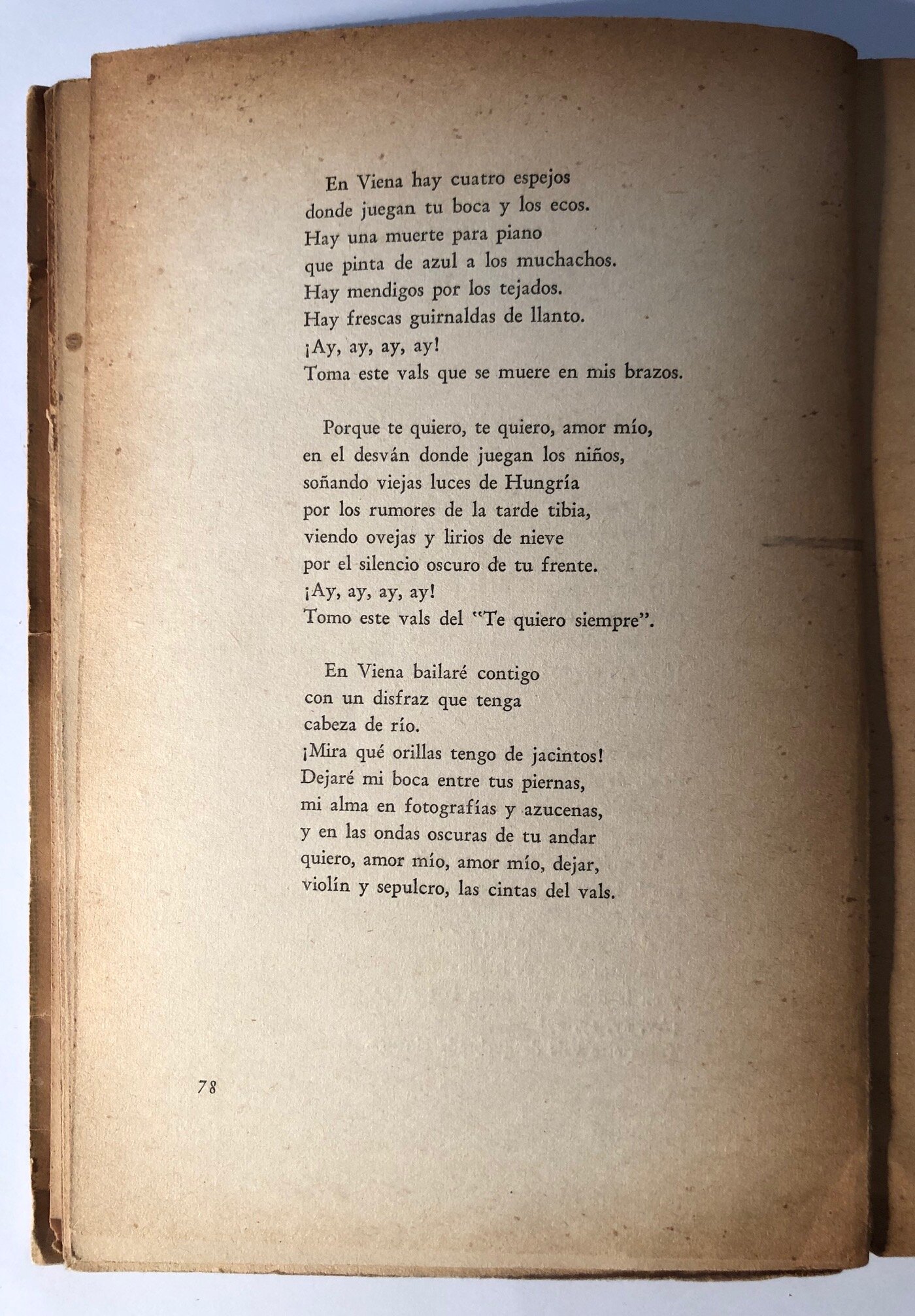
Translation of a Poem
In 1986, Cohen released his translation of Lorca’s poem as “Take This Waltz.” The English translation retains the images of Lorca’s original poem, at times changing or excluding a few details. This poetic license does the song favor by doing what the best translations seek to do: elevate beyond the literal while remaining true to the words.
Translation of a Song
“Leonard Cohen led me to Lorca” Enrique Morente, Omega documentary
“When I listen to Morente / I know what I must do / When I listen to Morente / I don’t know what to do” —Leonard Cohen, “Homage to Morente,” The Flame
In 1996, flamenco cantaor Enrique Morente gives us the honor of experiencing Lorca’s original verses—word for word, line for line—through Cohen’s musical interpretation. The album from which the song is featured, Omega, fuses flamenco and punk rock through cataclysmic means. All the songs featured on it are musical interpretations of Lorca’s poems (including three of Cohen’s songs). As one commentator put it, “Omega es el grito que Lorca hubiese pegado.” Omega is the howl that Lorca would have delivered.
Listen to the quieter album-released version:
And follow it up with the Poeta en Nueva York edge in this more punk rock version:
Additional Resources
“And so I had a voice, but I did not have an instrument. I did not have a song. And now I’m going to tell you very briefly a story of how I got my song:” Read Cohen’s acceptance speech for the Prince of Asturias Award for Literature 2011.
Read more about Lorca’s visit to New York in 1929.
Read more about Enrique Morente and Omega the album and follow the link to the documentary (in Spanish).
Frontispiece
Drawing by Federico García Lorca, 1934


